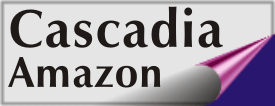|
Alan Soffin is an unusual philosopher. An atheist drawn to religion, Soffin’s project is to show how to conceptualize a “God” who is in and of the cosmos rather than also beyond it as theists affirm. This allows Soffin and those who see value in the path he blazes to value religion even while not being theistic. I found myself drawn to Soffin’s wrestlings as both publisher and person. As a publisher, the more I learned of Soffin’s interests the more I came to think that his attempt to help atheism and theism make common cause made his project a “living issue” deserving serious discussion and an examination of various ways both Soffin’s critics and those more likely to be drawn to his thought might understand his quest. This makes Rethinking Religion fit the Living Issues Discussion Series. To set the conversation in motion, typically books in the series include a vigorous statement of position regarding issues sometimes controversial in faith circles. Then, after a book’s main text, a Responses chapter provides affirming and critical commentary. However, I imagine it
wouldn’t have occurred to me to publish an atheist in the series had
it not been for my own journey through such matters. I was the child of
Mennonite parents who three months after I was born took me, their
eldest, to begin the missionary work in Cuba and then Mexico that was
to reach its close only when I was eighteen and on the cusp of starting
college. What I experienced in that milieu I was decades later to
summarize this way in my online seminary dean profile: Growing up in Cuba and Mexico as son of missionary parents, Michael A. King experienced multiple cultures and faith understandings. He learned to cherish the Anabaptist-Mennonite commitment to faithfully follow Jesus while wondering what alternate convictions another tradition might have shaped in him. Immersion in Christian thought and life at a time his Mennonite community forbade watching TV even as he gulped down secular books and novels made him wonder what was real and true and good amid competing perspectives. . . . As a result, into early adulthood King came to question the existence of God and the validity of Christianity even while craving the divine. . . . That history drew me to Soffin’s passions. Even as I am a theist who has given my entire adult life to serving the church as pastor, publisher, and now seminary dean, I have never forgotten how questionable Christian and theistic teachings once seemed to me; I still see myself as an agnostic Christian, not in the sense that I lack faith but in the conviction that we know only fallibly, only in part, as the apostle Paul himself one described it, or, as the New Testament writer of Hebrews once famously put it, as those yearning toward a far-off country we do not fully reach in this life. My own life and thought, therefore, make me experience Soffin as a fellow seeker. We
neither start nor end at the same place. In addition to the obvious
contrasts between atheist and theist, I find the perspectivalism with
which I frequently approach matters as a Christian who thinks that what
we can know is shaped by the particular commitments we make to be a
tendency Soffin delights (as he memorably does on p. 245) in skewering.
Yet we both suspect that in pondering with rather than against each
other, we draw nearer, even amid stark differences, to what we ache
for. Thus though I wouldn’t put matters this way, I find insight worth
pondering in Soffin’s statement (p. 254) that “For this reason, we say
that if we have knowledge, the divine is in us—is incarnate—and creates
us human. More exactly, when we attain knowledge, the divine and the
human are one. The existence of knowledge is, in this sense, God’s humanity.” I hope readers will experience a sense of mutual enrichment as they too, now, enter this book’s treasures. Reactions from authors of the Responses chapter, each quite different in view of these matters, some leaning theistic, others not, seem to me to offer such hope. They offer their diverse concerns or affirmations; they also each celebrate insights they perceive in Soffin’s unusual voyage. Thus I dare to hope that in being a volume written by an atheistic writer drawn to religious faith, supported by a theistic publisher drawn to exploring the limits of what can be known, and fleshed out by responses from thinkers of various faith traditions, Rethinking Religion opens a new path in faith-related thought. —Michael A. King, Series Editor, Living Issues Discussion Series |
||||||





